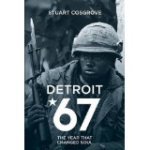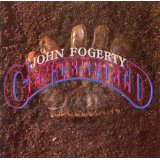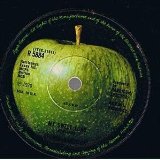It’s time to move away from albums, gigs and photos for a while and take a look at some of the music-themed books that have kept me sane on buses, trains and planes during 2015. By sheer chance, I’ve managed to pick out quite a nice variety of styles and themes, so the selection staggers from light-hearted memoirs through serious autobiography to high technology and serious crime (no, I don’t mean the new Coldplay album). So, as ever, in no particular order, here we go.
 “How Music Got Free” – Stephen Witt
“How Music Got Free” – Stephen Witt
There’s a myth that’s been perpetuated about the origins of the current situation where we have a generation that won’t pay for music and a generation that doesn’t even recognise the concept of paying for music. What Stephen Witt’s book achieves is a comprehensive demolition of the myth that file-sharing came about because of some sort of people’s revolution where millions of like-minded people decided to share their digital music collections. This well-researched work picks out the various converging paths ultimately leading to the digital devaluation of music. The book explores the bureaucracy that bedevilled the adoption of a standard compression algorithm, the greed of the major music labels as they rushed into the highly lucrative CD market, the failure of the majors to react to the phenomenon of file compression (and increasing online transfer speeds which made sharing a viable proposition) and the outright criminality involved in stealing and counterfeiting masters from CD pressing plants. It’s a fascinating but ultimately depressing book.
 “Detroit 67: The Year that Changed Soul” – Stuart Cosgrove
“Detroit 67: The Year that Changed Soul” – Stuart Cosgrove
Stuart Cosgrove has picked out a pivotal year in the history of Motown and imposed a structure of a chapter per month (it works pretty well) which sets the upheavals at Motown against a backdrop of riots in Detriot, unrest in the police force and a general national malaise. Berry Gordy plays a central role in the well-known story of Diana Ross’s advancement at the expense of the other Supremes (and the expulsion of Florence Ballard), but Stuart Cosgrove delves deeper into the sickness at the heart of the company, dealing with the unease of major artists and the ultimate defection of the Holland/Dozier/Holland writing/production team. The book goes far beyond music biography by showing these events in the context of a city in meltdown with riots on either side of the racial divide and a brutal, corrupt police force fanning the flames. It’s a fascinating read, although there are far too many typos in the Kindle edition.
 “Fortunate Son” – John Fogerty
“Fortunate Son” – John Fogerty
Confession time: the first song I performed in public was Creedence’s “Up Around the Bend” in a school band which included some good musicians and a future nuclear physicist, and me. I was a fan from an early age. “Fortunate Son” is John Fogerty’s attempt to put the record straight after accusations and counter-accusations, suits and counter-suits with his former band members Doug Clifford and Stu Cook. The book is unflinchingly honest throughout; John Fogerty isn’t trying a whitewash here. He owns up to his mistakes and errors of judgement and this gives him the right to expose others’ lies and hypocrisy. It’s difficult not to empathise with him in his battles with Saul Zaentz and the former Creedence members: he wrote the songs, after all. “Fortunate Son” pivots around John Fogerty’s meeting with his second wife, Julie, who brought order to his chaotic life and pushed him back towards popular and critical recognition. It’s good, it’s honest, it’s straightforward and it’s delivered in an authentic John Fogerty voice.
 “Unfaithful Music and Disappearing Ink” – Elvis Costello
“Unfaithful Music and Disappearing Ink” – Elvis Costello
Declan McManus has an awful lot of stories to tell and, not surprisingly, he has a gift for writing and storytelling. “Unfaithful Music…” is a cracking read, giving an insight into the creation of some wonderful music, and life in the music business bubble. The book doesn’t follow a straightforward chronological structure; it’s much more like a conversation in the pub with each observation triggering another digression. There are some difficult events to deal with (the Stephen Stills/Ray Charles incident for example) and they’re all dealt with in a very matter of fact way. The book skips over some big chunks of Elvis Costello’s life, but the ones he does tackle are done with honesty and candour. The names that crop up as the story unfolds are a history of popular music, but this never feels like name-dropping, they’re just people who happen to have been around at certain times. This is a wonderful book.
“ Rock Stars Stole My Life” – Mark Ellen
Rock Stars Stole My Life” – Mark Ellen
Mark Ellen’s memoir is a breezy and self-deprecating run through a life as a pop journalist, radio presenter, TV presenter and publisher. He gives an inside view on life at the NME in the seventies, The Old Grey Whistle Test and the Live Aid broadcast, all delivered in a jaunty style that’s very easy to read. He’s met and worked with some amazing people (again, it’s all matter-of-fact rather than name-dropping), but being a member of Ugly Rumours with Tony Blair takes some beating. Most of the book is fairly gentle humour, smiles rather than guffaws, but Mark Ellen saved the best for last. His account of the mayhem aboard Rihanna’s ill-conceived and farcical round-the-world-in-seven-days tour made me laugh out loud. The entire book’s funny, but this piece was hilarious.
If you don’t see anything you fancy there, Chrissie Hynde’s “Reckless” and Bob Harris’s “Still Whispering After All These Years” are both well-written and interesting biographies.
Please tell me it hasn’t come round again already; drunks on public transport, pubs packed with once-a-year drinkers and a demand from MusicRiot to cobble something together for their inane end of year feature. Damn, Christmas again and I hate Christmas unless I can sack a widow on Christmas Eve. But wait, I can see a chink of gloom poking through the bright lights; it looks like John Fogerty and Creedence Clearwater Revisited are opening legal hostilities again, so I think a festive five music lawsuits is about as much fun as I can hope for.
The man in the lumberjack shirt and his CCR ex-buddies are kicking legal lumps out of each other again and nobody really knows what it’s all about, but there are plenty of lawyers involved and onstage pronouncements and press conferences and a whole flamin’ media circus. Just bear this in mind guys; whoever wins, all the lawyers get paid.
But that’s not the most interesting lawsuit John Fogerty has been involved in, oh no. He sold the rights to his songs to his former label Fantasy (headed by the infamous Saul Zaentz) to escape from label (don’t try that one at home boys and girls) and go solo. So, Mr Fogerty gets a bunch of songs together and releases the album “Centerfield”. Happy ending; not quite. The litigious Mr Zaentz sues on the grounds that the album’s opening song, “The Old Man down the Road” plagiarises a Creedence song, “Run Through the Jungle”, which Zaentz holds the copyright for. He wasn’t too chuffed about the song “Zanz Kant Danz” (later changed to “Vanz Kant Danz”) either. So what could be more stupid than suing someone (unsuccessfully) for copying their own song?
Well, David Geffen had a pretty good shot at it in 1983 with Neil Young when he sued him for not sounding like his previous records. After signing one of the most contrary artists in rock (or maybe just a guy who follows his own artistic vision), he decided, after three albums he didn’t like, to sue Shakey for submitting ‘uncharacteristic’ music for release. Maybe it was a bit of a coincidence that the albums weren’t selling. You have to wonder where David Geffen had been living during the seventies if he hadn’t realised that Neil Young didn’t give a stuff about following commercial trends. They eventually kissed and made up and Shakey went back to his spiritual home at Reprise records.
So that’s one case of a label suing an artist for sounding too much like themselves and another case of a label suing an artist for not sounding like themselves. Where else can the stupidity go? Well, back in time a decade or so.
After the Beatles, the quiet one was quickly out of the blocks with the triple album “All Things Must Pass” and the single “My Sweet Lord”. Three weeks after the release of the single, George was hit with a lawsuit alleging that the single plagiarised the Chiffons single, “He’s So Fine” (big in the US, not so big in the UK). It took five years for the case to come to court and George was found guilty of “subconscious plagiarism”, which cost him over half a million dollars. What you have to ask is how come no-on spotted this similarity? “All Things Must Pass” was co-produced by Phil Spector, who was very much part of the American teen scene in 1963 when “He’s So Fine” was a hit. It’s hard to believe he couldn’t spot such an obvious similarity. So, how many more ways could lawyers invent to make money out of the music business. How about “Where there’s blame there’s a claim”?
Jumping back to the eighties again, in 1988 the parents of a teenage fan tried to accuse Ozzy Osbourne of causing the death of their son, claiming that hidden lyrics in “Suicide Solution” had caused their son to take his own life; the suit was dismissed but it didn’t mean that the suicide blame game was over. In 1990, Judas Priest were taken to court by the parents of two teenagers who, after a drugs and alcohol binge, attempted a suicide pact. It’s interesting that no-one was trying to sue any brewers, distillers or dealers for their part in the events. Just ask yourself again who benefitted from these legal cases; I’ll give you a clue, it wasn’t the parents or the bands. Ok, it’s Christmas, let’s try to end on a slightly happy note.
It all started off so well; a bunch of school friends got together and formed a band in the seventies. The band caught the New Romantic zeitgeist with their first single in 1980 and everything was looking good; who needed lawyers and contracts? Well, in this case it might have been a good idea (I never said I had to be consistent) because any memories of verbal agreements vanished after the band became famous. In 1990, Tony Hadley, Steve Norman and John Keeble sued for a share of the booty, claiming that their contributions and a verbal agreement entitled them to a twelfth of the royalties. The case was dismissed and the non-Kemp Spandaus faced huge legal bills, but that wasn’t the end of the affair.
In 2009, the guys resolved their legal issues and got back together to tour again as Spandau Ballet; well, it is Christmas and we should have a happy ending really. There’s a lesson there as well; at this time of year, everyone goes to the pub and maybe that’s what the Spandaus and all of the other people mentioned here should have done. Forget all of the lawyers, go and have a few beers and sort all of your problems out.
Merry Xmas.







